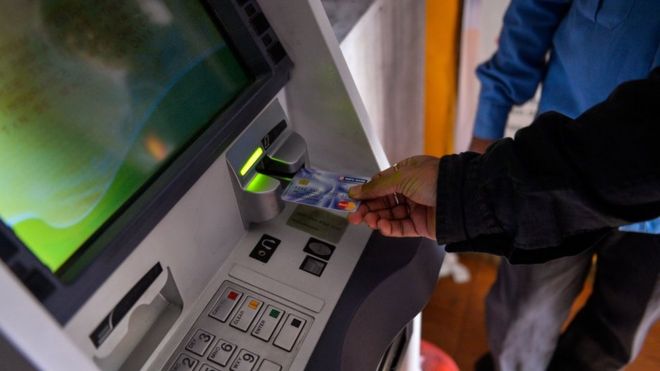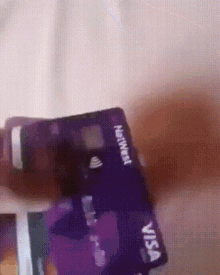
Hackers robbed the central bank!
"Computer hackers managed to breach Bangladesh's cybersecurity to steal over one billion dollars. While Americans suspect the culprits are North Korean, no one truly knows their identities.
The backstory of the major heist at the Bangladesh Central Bank has come to light. Computer hackers breached Bangladesh's cybersecurity to steal over one billion dollars. The FBI associates this heist with a North Korea-based cybercriminal group called the Lazarus Group. One of the suspects in the case is Park Jin-hyok. Philippine authorities managed to recover a portion of the stolen money, but a significant amount is still missing. This incident underscores vulnerabilities in cybersecurity for banks worldwide, warning of the possibility of future similar attacks.
The heist story in The New York Times goes like this:
Zubair Ben Huda, the night officer at the Bangladesh Central Bank, had no idea that on the morning of February 5, 2016, he would face one of the largest robbery attempts in history when he entered the 30-story headquarters building in Dhaka at 8:45 a.m.
As he rode the elevator to the ninth floor, Ben Huda was headed to the "processing room" of the Accounting and Budget Department, which only a few people were authorized to enter. Suddenly, when he arrived, the printer that produced messages showing Swift transactions malfunctioned, leaving him bewildered about what to do.
The machine had experienced minor malfunctions before, and Ben Huda, who was inspecting it, was trying to find the source of the problem when international Swift instructions couldn't be displayed. Moreover, since it was an official holiday in Bangladesh, the technical team was unavailable.

'WE WERE USED TO SUCH GLITCHES'
Because digitalization steps hadn't been taken at the Bangladesh Bank, administrative staff members sent messages via standard phone lines and other channels and filed prints of large transfer instructions, making the printer vital.
Efforts were made to fix the device, but to no avail, and due to the official holiday, the transfers couldn't be displayed. Even Ben Huda, trying to figure out the problem, didn't realize that this could be related to a cyberattack. Though he said, "We were used to such minor glitches," the situation was far from what he expected.
When Bangladesh Bank officers managed to get the printer working, they received three messages from the New York Federal Reserve Bank. An employee of the Fed, writing to Bangladesh, sought an explanation about 46 payment instructions received within the past 24 hours.
The Fed had never before received requests for such large amounts from the bank. Instructions had been given for the transfer of around one billion dollars.
"I thought there must be a mistake," Ben Huda thought. Even during office hours, the Central Bank rarely sent more than two or three payment instructions to the Fed in one day.
Bangladeshi officials began examining the files to obtain more information. Where had the money gone? The available statements were unclear and illegible. Realizing a serious mistake had been made, Ben Huda panicked and couldn't decide where to turn.
Despite sending emails and faxes to stop all payment transactions, as Ben Huda described in his testimony during the subsequent investigation, no one realized that they were dealing with the most audacious bank heist ever.
Computer hackers had infiltrated the system and launched an unprecedented cyberattack that had never been seen before. They had a single goal: to transfer billions of dollars that the Central Bank held in various accounts through various transactions.
USING ONLINE CASINOS TO MOVE THE MONEY
The magnitude of the robbery began to emerge a day later. After managing to get the printer running, Bangladeshi officials received three messages from the New York Federal Reserve Bank. An employee of the Fed, writing to Bangladesh, sought an explanation about 46 payment instructions received within the past 24 hours.
The Fed had never before received requests for such large amounts from the bank. Instructions had been given for the transfer of around one billion dollars.
"It must be a mistake," Ben Huda thought. Even during office hours, the Central Bank rarely sent more than two or three payment instructions to the Fed in one day.
Bangladeshi officials began examining the files to obtain more information. Where had the money gone? The available statements were unclear and illegible. Realizing a serious mistake had been made, Ben Huda panicked and couldn't decide where to turn.
After the incident, the night officer of the Central Bank, who answered questions during the investigation, said that he had sent emails and faxes to stop all payment transactions. But no one noticed that they were facing the largest and most daring bank robbery they had ever seen.
Computer hackers used various means to move the money, including aid agencies, online casinos, fake bank accounts, and a wide network of collaborators.
SECURITY VULNERABILITIES COST MILLIONS OF DOLLARS
A cybersecurity firm employee from BAE Systems in the UK, who was investigating the attack on the Bangladesh Bank, found that they were using "minimum" security systems.
Even for skilled hackers, the best way to infiltrate the Swift system is through other member banks. In the last three years, hackers have tried to send fake payment instructions through the Swift network by infiltrating computer networks in banks in Ecuador, Taiwan, Vietnam, Poland, India, and Russia. While various mechanisms have been put in place to counter hackers, millions of dollars have been lost during this time.
Patrick Neighorn from the US cybersecurity firm FireEye said, "Developing countries' banking systems don't have the security mechanisms that developed countries have. This creates a vulnerability within the system. Most transactions cannot be centrally managed, and the technological infrastructure to do so hasn't been implemented yet."
So, who were these hackers? From which countries did this operation take place? Authorities tracking digital footprints were horrified by the situation they faced.
70 FAKE PAYMENT INSTRUCTIONS FOR STEALING 1 BILLION DOLLARS
Examinations revealed that the hackers had infiltrated the global Swift system and, after hiding for months, had chosen the country with the most primitive banking system for their operation. When the operation day came and it started Thursday afternoon New York time, 70 fake payment instructions totaling 1 billion dollars were issued to four bank accounts in the Philippines and one bank account in Sri Lanka at the Federal Reserve Bank in New York.
The timing was well thought out. With the official holiday falling on a Friday and the bank branches being closed on weekends, the hackers had bought themselves a lot of time. And that wasn't all; even though Ben Huda had sent an order to stop the transfers to the Central Bank of the Philippines, they couldn't stop the transfer because of the Chinese New Year.
Bangladeshi officials officially requested the cancellation of the transaction only four days later. However, the Central Bank of the Philippines requested that complaints and cancellation requests be sent to them in writing via diplomatic post.
But who organized such a heist, and who had the expertise and audacity to execute it? While investigators struggled to find answers, the Bangladesh Bank appointed the US cybersecurity firm FireEye to investigate.
FireEye signed a privacy agreement with the bank and, although an agreement was reached for absolute privacy, some of the bank's findings leaked to the public, and other cybersecurity firms drew their conclusions from public evidence.
'NO BANK IN THE WORLD IS SAFE'
Soruce : Akit





